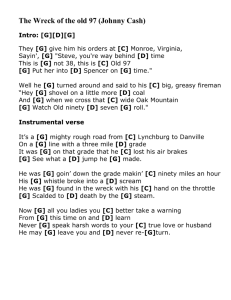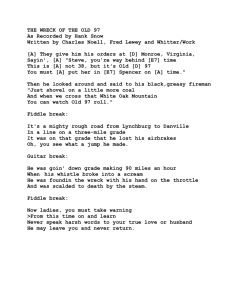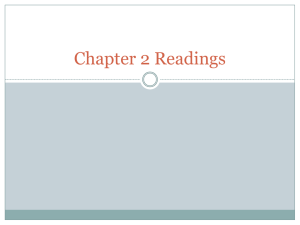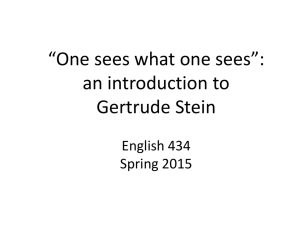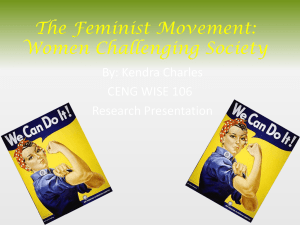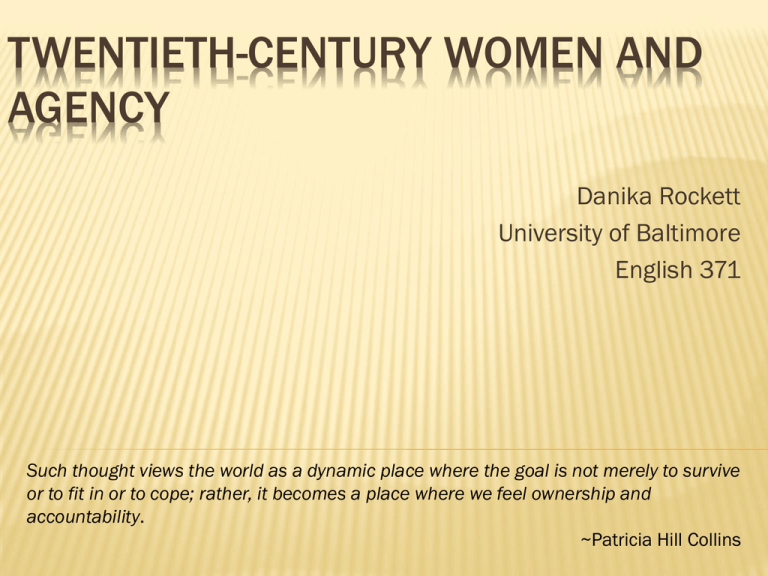
TWENTIETH-CENTURY WOMEN AND
AGENCY
Danika Rockett
University of Baltimore
English 371
Such thought views the world as a dynamic place where the goal is not merely to survive
or to fit in or to cope; rather, it becomes a place where we feel ownership and
accountability.
~Patricia Hill Collins
FIRST WAVE FEMINISM
1792 – Early 20th Century: Basic human rights
19th century women began to demand equality
20th century women won the right to vote
Women entered the workforce, noticed inequality
Housewives complained of no personal fulfillment
Mary Wollstonecraft, Sojourner Truth, Virginia Woolf,
Alice Paul,
SECOND WAVE FEMINISM
Early 1960s – ~1980s: Justice
This wave came as a response to efforts to re-establish prewar patriarchal social trends*
These women fought for
Legislation victories
Reproductive rights, Pay equity, Sexual harassment, Gender
discrimination, The handling of rape victims in the courts,
Criminalization of marital rape
Equal Pay Act of 1963, Title VII of the Civil Rights Act of 1964,
the Griswold v. Connecticut (1965), Roe v. Wade (1973),
Women’s Educational Equity Act (1973, 1975),
National Organization for Women (1966)
Betty Friedan*, Simone de Beauvoir, Gertrude Stein,
Adrienne Rich
THIRD WAVE FEMINISM
~1990s – present: Global perspective
“Women are of many colors,
ethnicities, nationalities, religions
and cultural backgrounds …”
Feminism involves all women—not
just white, middle-class
Participants work from within
political structures rather than
criticizing from the outside
Barbara Smith, Patricia Hill Collins,
bell hooks, Gloria Anzaldúa
TODAY’S READINGS
Gertrude Stein: “A Sonnet”
Adrienne Rich: “Diving into the Wreck”
Maya Angelou: “Still I Rise”
Patricia Hill Collins: “Black Feminist Thought in
the Matrix of Domination”
Laurel Sutton: “Bitches and Skankly Hobags”
Charles Perrault: “Little Red Riding Hood”
Angela Carter: “The Company of Wolves”
GERTRUDE STEIN (1874 – 1946)
American, but spent most of
her life in France
Friends with many famous
writers, poets, and artists
Lifelong partner was Alice
Toklas
Coined the term “The Lost
Generation”
Ernest Hemingway, F. Scott
Fitzgerald, T.S. Eliot, Ezra Pound
Portrait of Stein, painted by Picasso
GERTRUDE STEIN
“A SONNET” (1927)
Title is ironic
Appears in her long poem Patriarchal Poetry
Who is the speaker in this poem?
What does the speaker seem to be saying?
ADRIENNE RICH (B. 1921)
Born in Baltimore
Her parents pressured
her to be a “prodigy”
Married in 1953 but later
came out as a lesbian
Influential civil rights,
anti-war, and feminist
activist
ADRIENNE RICH
“DIVING INTO THE WRECK” (1972)
The “wreck” is historical myth
Knowledge, and creating new knowledge, is
powerful
“the damage” = lies/myth
“treasures” = the truth
This diver has come for “the wreck and not the
story of the wreck”= the actual event and not just
someone else’s idea of that event
“the fouled compass” = taking direction from past
stories will lead you astray
“a book of myths/in which our names do not
appear” = because it was written by those in power
MAYA ANGELOU (B. 1928)
San Francisco’s first
African-American female
cable car operator
Performed on Broadway in
the 1950s
Fluent in French, Spanish,
Italian, Arabic and the
West African language
Fanti
Friends with Malcom X
and Martin Luther King, Jr.
A bird doesn’t sing because it has an answer. It
sings because it has a song
MAYA ANGELOU
“STILL I RISE” (1978)
How is this poem similar in
theme to “Diving into the
Wreck”?
PATRICIA HILL COLLINS (B. 1948)
Born in Philadelphia
Master’s degree from
Harvard
She examines issues of race,
gender, social class, sexuality
and/or nation
Distinguished University
Professor of Sociology at
UMCP
PATRICIA HILL COLLINS
“BLACK FEMINIST THOUGHT” (1990)
Age, sexual orientation, race, social class,
religion, and gender are “part of one
overarching structure of domination”
Black feminist thought debates “truth”
Epistemology
“Female spheres of influence”
Are you Black, or are you a woman?
Colin Powell, Barack Obama—racism is
eradicated, right … ?
LAUREL SUTTON
“BITCHES AND SKANKLY HOBAGS” (1992)
Double-standards in the English language
Master/mistress, bachelor/spinster, player/slut
90% of slang words for women are negative
Only
favorable from male perspective
Many refer to sexual promiscuity, attractiveness,
weight, intellect, as objects or animals
“A man who has sex often is to be admired; a
woman, despised” (Sutton 287).
CHARLES PERRAULT (1628 – 1703)
LITTLE RED RIDING HOOD
Perrault was a French author
who helped create the genre
of “Fairy Tales”
These stories served as
morals for how children (and
adults) should behave
Often focused on girls and
women to warn them
He authored the Tales of
Mother Goose stories
In more recent versions of
LRR, the girl is rescued
ANGELA CARTER
(1940 – 1992)
Known for feminist,
fantasy, and science fiction
writing
Working on sequel to
Charlotte Brontë’s Jane
Eyre when she died
“The Company of Wolves”
(1979)
How is this re-telling
different from the original?
How could you argue that
this is a feminist re-telling?
PRESENTATION GUIDELINES: JULY 14
Presentation will be based on your reflections of what you have
learned in this class as well as the topic of your final essay
25 points. I will look for these 5 elements
1.
Reflection: What are some significant things you learned this
semester? In what ways have women changed throughout
history? What surprised you the most? Etc.
2.
Final essay topic: What topic have you chosen? Why? How will
you make your argument?
3.
Tell us something interesting about your topic: Is there a
surprising fact or statistic related to your topic? You may use
visual aids or PowerPoint, but it is not required. You might
practice your presentation with a friend to get someone else’s
perspective on how well you convey the subject matter
4.
Clarity of speaking voice: You don’t have to be perfect, but you
should do your best to maintain eye contact and speak clearly
and loudly enough for everyone to understand
5.
Time (should be between 10 and 15 minutes)
READINGS FOR MONDAY, JULY 12
Stephanie Coontz – “Leave it to Beaver and
Ozzie and Harriet: American Families in the
1950s.”
Melissa Silverstein – “Feminism and
Revolutionary Road”
I have modified the readings, so be sure to
read the handouts I am providing now
IN-CLASS ESSAY
For today’s essay, I ask that you write ¾ - 1 page
describing the topic you plan to write on for your
final essay.
What topic have you chosen?
Why?
How does this topic reflect on the title of this course,
“Changing Woman”?
Which readings or sources will you use to make your
point?
I will review them and provide feedback either via
email or in class Monday
Be sure to put your email address on your essay if you
want quicker feedback, and check your email!



